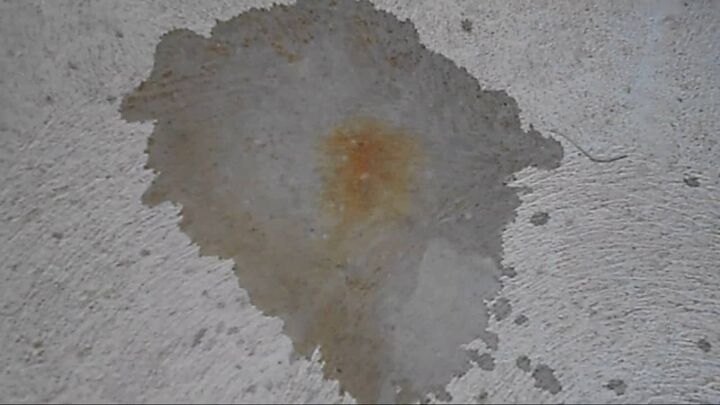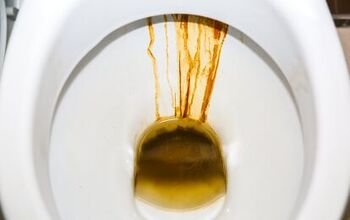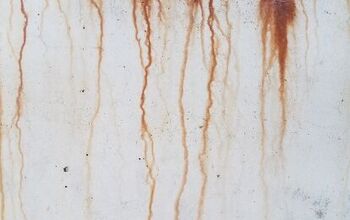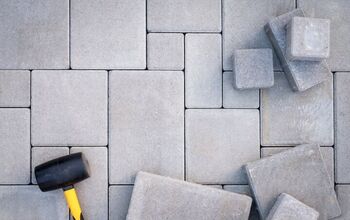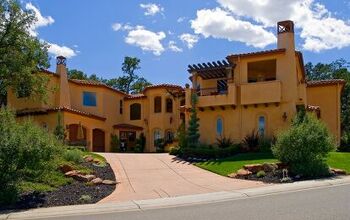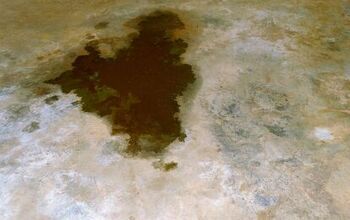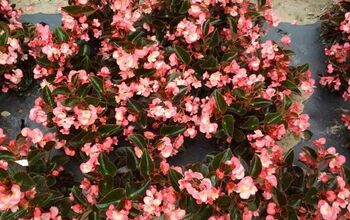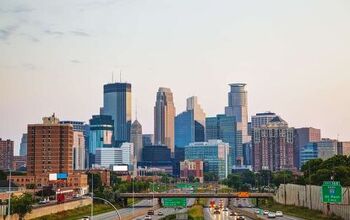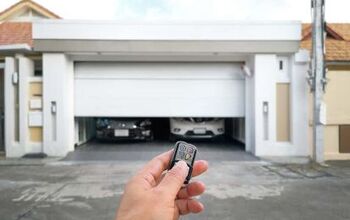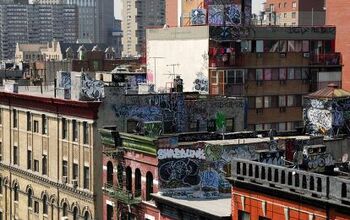What Causes Rust Stains On Concrete? (Find Out Now!)

There is nothing worse than persistent rust stains that blemish your concrete. Whether it be by the pool or in your driveway, rust stains draw the wrong kind of attention and look bad. They can be easy to remove, but what causes rust stains on concrete?
Rebar is the most common source of rust stains on concrete, but other metals used in and around concrete can also cause rust stains. Fertilizers often create rust stains because of the magnesium, copper, and zinc that react with the concrete. Otherwise, rust stains occur when soft rocks such as coal and ironstone come through the concrete due to moisture buildup.
Rust can always spill from rusted objects that you have outdoors, and that leaves a stain as well. Follow along as dive into what causes rust stains on concrete and what you can do about it.
Don't want to do it yourself?
Get free, zero-commitment quotes from pro contractors near you.

Common Causes Of Rust Stains On Concrete
Your concrete can incur rust stains, and it can turn the concrete into an eyesore. Most homeowners don’t want rust unless they’re going for a rustic vibe, and so the variegated appearance can be off-putting. Rust stains are also unattractive and unappealing to potential buyers when you put your house on the market.
It can be hard to identify the cause of rust stains when they first appear, and that can be frustrating. You must first identify the cause of your rust stains, and then you can go ahead and treat the concrete.
Concrete rust stains are not the end of the world and won’t damage the concrete too much. You can’t remove rust stains from concrete until you know why it happened to begin with. Let’s take a look at the main causes of this problem and what you should do to get rid of them.
1. Fertilizers Can Cause Rust Stains On Concrete
Concrete gets exposed to fertilizers throughout the year, but especially during spring and summer. Fertilizer can blow and scatter when you do yard work and when it is windy outside. The copper, magnesium, and zinc among other elements in fertilizer can create rust stains on concrete.
This is the worst-case scenario because it is difficult to remove rust stains if fertilizer is the cause. That is because fertilizer causes a chemical reaction between the minerals, concrete, and metals that can weaken the surface. You can’t wash away rust stains caused by fertilizer with water, and chemicals like CLR don’t always work.
Unfortunately, all that you can do is work to avoid exposing your concrete to fertilizers. The best way to do this is to pack fertilizer tightly if is near the concrete avoid spraying chemicals near the concrete.
2. Popouts
Pop-outs, or popouts, are frustrating, rust protrusions that stand out and make the concrete look dirty. Some batches of concrete contain coal and iron stone, and they both can absorb water quite well. The iron stone and coal can absorb too much water at once at a time and this causes a concrete popout.
Concrete popouts create an appealing rust stain, and they are hard for anyone to miss. The buildup of moisture makes the concrete pop through the stone, and it eventually creates a rust stain. They may not always stand out when they first appear, but the concrete will look bad when more come through.
Popouts can occur throughout a concrete section if there is a lot of sock rock, such as coal and iron stone. Rust stains from concrete popouts are fairly easy to remove, but they may continue unless you remove that section of concrete.
4. Other Soft Rock Issues
When the stone aggregate that goes into your cement is mined, there are often soft rocks that are mined at the same time. Therefore, there’s a high likelihood that some of these soft rocks will make their way into your concrete mix.
These soft rocks are very porous and have a higher iron and metallic moneral content than other kinds of aggregate. Since there’s no precise way to remove all soft rocks from the aggregate, concrete suppliers are allowed to include a small amount.
Soft rocks tend to absorb more water than others, and if they happen to be near the edge of the concrete, this could be a problem. As the rocks absorb water, they sell and push out of the concrete, getting exposed to the weather. Once this happens, rust starts to form.
5. Spills
Rust can spill and cause one of the easiest to identify but most annoying to clean concrete stains. Have you ever left a tool or piece of furniture with metal in the rain for days or weeks? When you eventually move it, rusty water can often spill onto the surface below.
This creates a rust stain that you can’t simply rinse away with your garden hose.
6. Metal
Almost all metal rusts, especially if it has iron in it. For this reason, any metal that you keep outside should feature some type of protective coating. If you have had any exterior metal making contact with the concrete, it can create rust stains.
Consider items like fence posts, metal fences, or bolts used to attach things to the ground, like a gazebo or other outside feature. Even if these metal items are coated, the coating can wear away or become damaged over time.
Once the outer protective coating wears off, the inner metal can begin to rust, which then spreads onto the surrounding concrete.
7. Rusty Rebar Is A Primary Cause Of Rust Stains On Concrete
Concrete features steel rebar to provide reinforcement to build up its tensile strength. This reinforcement greatly increases the support concrete provides, making it possible to build pretty much anything on concrete.
However, for all its perks, rebar can rust eventually. Even though rebar s typically well within the concrete, away from the edges, this doesn’t make it immune to rust. The concrete serves as protective coating of sorts, but if it becomes cracked, water can find its way to the rebar.
Once the rebar begins to rust, it can create rust stains on the concrete. Furthermore, when the steel starts to corrode, iron oxide begins to expand within the concrete. The resulting stress can damage the concrete even further, making cracks larger and worsening the rust stains.
8. Iron Rich Soil
If you live in an area with iron-rich soil, it can cause rust spots similar to fertilizer. In a nutshell, anything containing iron can cause rust stains on concrete since iron is so susceptible to rusting.
How Do You Get Rid Of Rust Stains On Concrete?
The easiest way to get rid of rust stains on concrete is with Calcium, Lime, and Rust Remover. However, that is not always the ideal solution, and you may need to try a few methods. Chemicals like CLR are ideal for rust popouts, whereas WD-40 and oxalic acid are ideal for when you spill rust.
You can’t always count on chemicals to remove rust stains from concrete if it’s due to fertilizer. That is because the chemical, mineral, and metal combination reacts with the concrete surface. The chemical reaction renders water useless, and chemicals don’t work as well to treat the concrete when it’s from fertilizer.
Let’s take a look at the best ways to get rid of rust stains on concrete.
1. Calcium, Lime, And Rust Remover
Calcium, Lime, and Rust Remover (CLR) is the best way to remove rust from concrete when you have a popout. Simply mix the CLR into a bucket or sprayer into a 50% water mixture, and spray or pour it onto the popout. Try to be exact and direct to only hit the spots on the concrete that have rust stains.
Set a timer for two minutes and wash the CLR off of the concrete with water. You can always apply more CLR to the surface if there is still a trace of rust.
2. Oxalic Acid
Oxalic acid is ideal to treat rust stains caused by spills or rust popouts. Mix one cup of oxalic acid, such as Iron Out, into one gallon of hot water. After 10 minutes, you can gently brush the oxalic acid solution onto the rust stains with a brush.
Repeat the process as many times as you need until the rust stain is gone.
3. Remove Concrete Section
You may need to remove a section of concrete if rust stains come through often. Reoccurring popouts may suggest that there is too much soft rock in that area. You can treat the popouts as much as you want, but you can only prevent it if you remove the section.
Contact a professional to see about having the problem area removed and replaced or touched up. Otherwise, you can always break out the cement saw and remove and replace the section yourself.
4. Use Natural Cleaners To Get Rid Of Rust Stains On Concrete
If you prefer to not use chemicals, you can always attempt a natural cleaner first. You can try several combinations, including baking soda and vinegar, or vinegar and lemon juice, or simple soap and hot water. You can also try baking soda by itself or make a poultice.
Whichever solution you choose, let it soak into the rust stain for about 10 to 30 minutes before you scrub it. The more intense the stain, the longer you should let it soak.
When you scrub it, use a hard-bristled brush. If the stain is simply a surface stain, this should do the trick. However, if the stain has penetrated deep into the concrete, it will be more challenging to remove.
To draw out stains from deep within the concrete, make a poultice of baking soda and soapy water to create a paste. Cover the entire stain with the paste, then cover with plastic wrap.
Let it sit for a least an hour, then clean off the paste.
5. After Removing Rust Stains From Concrete Use A Sealer
Summing It Up
Rusty rebar and concrete popouts are the main causes of rust stains on concrete. Popouts occur when soft rocks like coal and ironstone gain excess moisture and come through the concrete. You can treat the rust stains with Calcium, Lime, and Rust Remover or remove the concrete section.
Rust stains also appear on concrete when the magnesium, zinc, and copper in fertilizers create a chemical reaction. That is the only kind of concrete rust stain that you can’t fix because the chemicals change the surface of the concrete. Otherwise, it is also common to stain your concrete with wet rust from outdoor furniture or tools when you move them.
Related Questions
Can you paint over rust on concrete?
You can paint over rust on concrete, but it may affect how smooth it turns out. You can remove the rust using chemicals instead to ensure that you get a better coat of paint on the concrete. Or, you can take advantage of the stains and add artificial stains using magnesium to create a unique, rustic look.
Does rain affect concrete?
Rain only affects concrete directly after you pour it, and it does not create rust stains. Concrete can incur surface scaling damage shortly after you pour it during heavy rain. Otherwise, cured concrete does not get impacted negatively by rain.
Don't want to do it yourself?
Get free, zero-commitment quotes from pro contractors near you.

Related Articles

Nick Durante is a professional writer with a primary focus on home improvement. When he is not writing about home improvement or taking on projects around the house, he likes to read and create art. He is always looking towards the newest trends in home improvement.
More by Nick Durante




